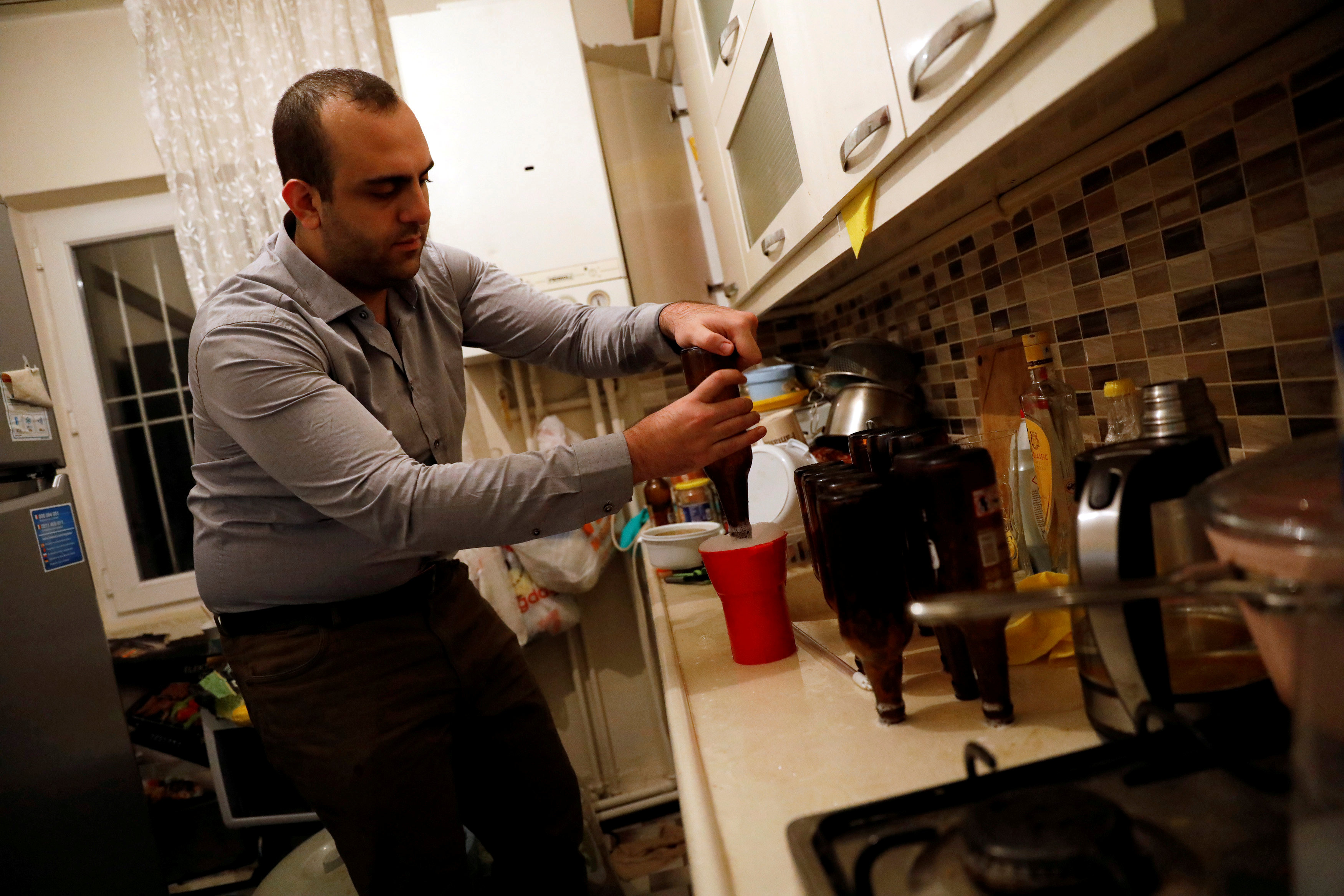
By Tuvan Gumrukcu and Dirimcan Barut
ANKARA (Reuters) – Carefully testing the temperature of a bucket of fermenting beer, Onder Ceyhan pushes back the foam to add a touch of yeast to his latest batch of home-brewed drink.
Ceyhan says he, like many others in Turkey, has been driven to brewing his own beer by the high price of commercially produced alcoholic drinks and the hefty taxes imposed by Turkey’s ruling Islamist-rooted AK Party.
“I might never have started this if beer wasn’t so expensive,” the 25-year old university student said.
Under President Tayyip Erdogan, a pious Muslim known for his dislike of alcohol, taxes on booze have increased steadily and now account for two thirds of the cost of some alcoholic drinks.
From early 2003, when Erdogan came to power, to October 2017, prices of raki – a traditional aniseed-flavored spirit – have jumped by 665 percent and beer prices by 580 percent, according to data from the Turkish Statistics Institute (TUIK).
“What surprised me when I got into this was the cost. If I can make it this cheaply, it’s strange that commercial beers are so expensive,” said Ceyhan.
He makes beer from an online kit, while others brew cider, lagers and wine. Some also dilute shop-bought ethanol to make their version of vodka or raki.
While only a small portion of Turkey’s 80 million people drink alcohol regularly, many of those who do are determined not to be denied their tipple by the rising prices – even though drinking home-brewed alcohol is not without its risks.
Following the latest 10 percent increase in alcohol duty, which came into effect in December, the number of people producing their own drinks has grown, distributors say.
“It’s like a hidden reflex, a desire to be self-sufficient. We don’t know what will be restricted or what they will allow tomorrow,” said a 58-year old brewer, who asked to remain anonymous fearing a potential backlash.
“It’s as easy as making coffee, but it’s ready in about a month,” said the civil servant from Ankara, who makes wines and beers of different flavors, including raspberry and coffee.
He said a bottle of his homemade beer costs around a quarter of the price in the shops.
“AM I CRAZY?”
Erdogan’s distaste for alcohol stands in contrast to modern Turkey’s founding father, Mustafa Kemal Ataturk, who championed secularism and was often pictured with a glass of raki.
The president has criticized alcohol consumption as morally harmful to society, insisting that Turkey’s national beverage is not raki but the non-alcoholic yoghurt drink ayran.
As of 2013, all advertisements, promotions and sponsorships of alcohol and tobacco products have been banned in Turkey. Such products are frequently blurred out in television shows.
The surging taxes have reduced the volume of commercial alcoholic drinks sold in Turkey, with beer sales falling 10 percent between 2012 and 2016, and raki sales dropping by nearly a quarter, according to data from Turkey’s tobacco and alcohol watchdog (TAPDK).
Cagatay Mekiker, marketing director for Turkey’s second- largest producer and distributor of alcoholic beverages, Antalya Alkollu Icecekler, said sales of ethanol had risen as part of a “rebellion” against the tax rises.
He did not give a figure for the increased ethanol sales but Arda Gurdal, marketing director at drinks company AFS Icecekler said sales rose by up to 5 or 6 percent in the past year.
Since the December hike, tax now constitutes nearly two-thirds of the 93 lira ($24) price of a standard 70 centiliter bottle of raki at the supermarket. One bottle costs more than 6 percent of the minimum monthly wage in Turkey.
A bottle of Antalya Alkollu Icecekler’s ethanol sells for half that price at one of Turkey’s main supermarket chains, and can make up to 4 liters of drink, brewers say.
Mekiker said the final product from some mixtures was not “real raki”. Even advocates of the home-mixed drinks admit that diluting ethanol with water and aniseed flavoring is not the same as making an authentic drink – and admit there are dangers.
In 2015, several people in Turkey died of alcohol poisoning, predominantly from bootleg alcohol used in the mixing of raki, while others went blind from improperly mixing alcohols, which can have a purity level of up to 95 percent.
For some, though, the over-riding factor is cost.
“Am I crazy? Why would I bother making drinks of poor quality at home instead of drinking the fine ones if it wasn’t for prices?” said 23-year old Memet Yucekaya, who uses ethanol.
(Additional reporting by Umit Bektas and Nevzat Devranoglu; Writing by Tuvan Gumrukcu; Editing by David Dolan and Gareth Jones)
Copyright 2017 Thomson Reuters. Click for Restrictions.


